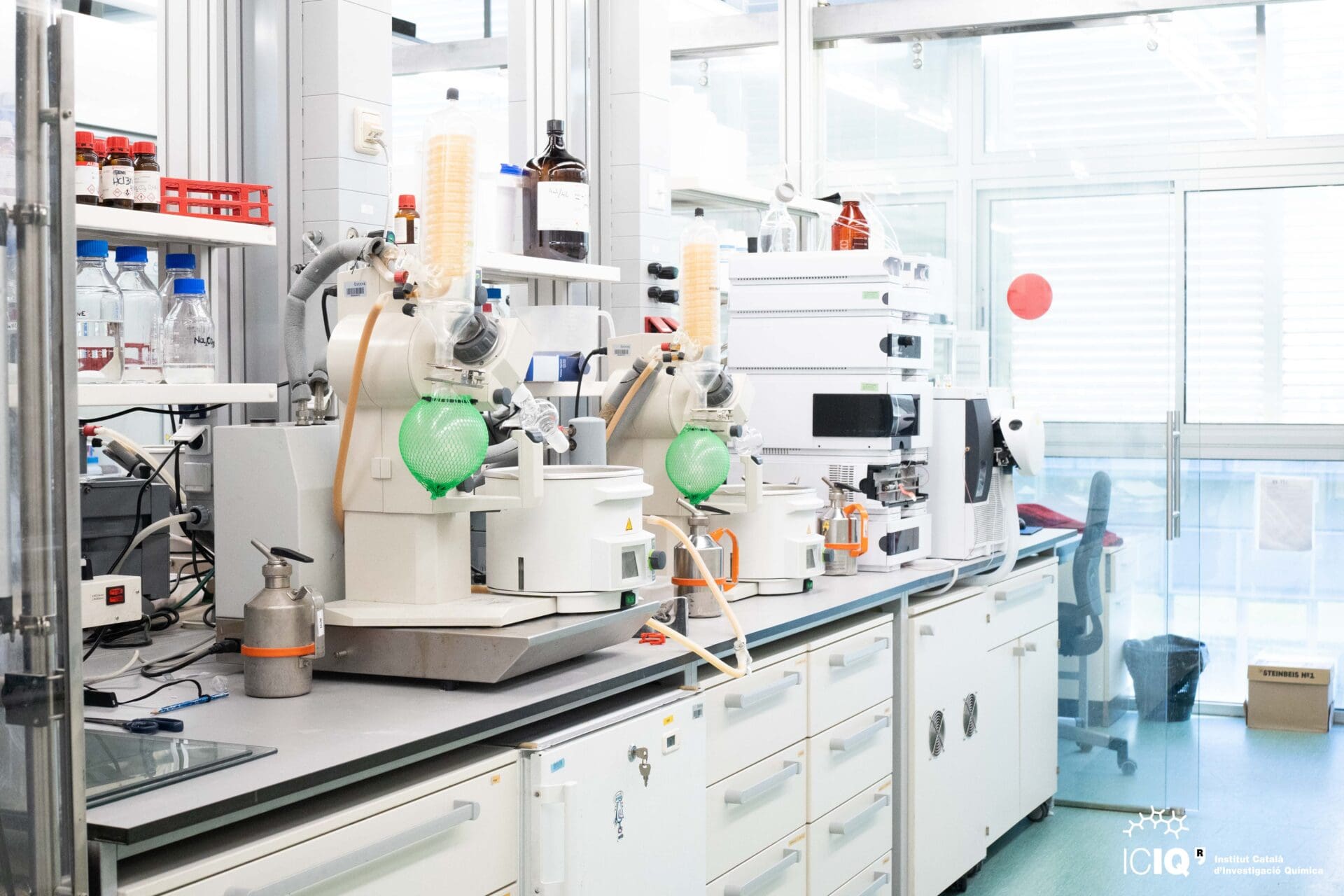ICIQ's High Throughput Experimentation (HTE) Laboratory boosts companies’ scientific and innovation projects
8th June 2023 -
Is your company looking for fast screening of categorical variables? Or maybe do you need to implement a specific type of HTE platform to carry out the screening campaigns internally?
The HTE laboratory, from the Institute of Chemical Research of Catalonia (ICIQ-CERCA) Scientific Core Facilities Area, allows the execution and analysis of large sets of experiments in a time- and material-efficient manner to expedite synthetic development.
The variety of chemical reactions includes air-sensitive reactions, photoassisted catalytic reactions and reactions with reactive gases. These reactions are conducted in commercially available and in in-house constructed 24-, 48- and 96-multiwell reactors with standard SLAS dimensions. Multiple reaction conditions can be tested rapidly, with less consumption of reagents and less effort compared with traditional batch experimental techniques, thus accelerating chemical reaction discovery and optimization.
This technique is especially relevant for the fast screening of categorical variables; for fast substrate scope exploration of a given synthetic methodology; and for the generation of standardized large data sets to train Machine Learning (ML) algorithms for chemical reaction prediction.
HTE industry applications
HTE techniques are routinely used in a wide range of applications within major pharma, agrochemical and fragrance companies related to the exploration of chemical reactivity space. For instance, in pharma companies, HTE techniques are useful in drug discovery and route scouting projects. In the former, addressing synthetic challenges such as those encountered in lead identification and optimization: from finding suitable reaction conditions for a particular transformation, to locating robust and general reaction conditions to streamline the generation of compound libraries by parallel synthesis. In the latter, to test multiple hypotheses simultaneously to determine the best reaction conditions of a specific chemical transformation, or, contrarily, to quickly discard the proposed synthetic pathway and test other hypotheses.
ICIQ’s HTE Laboratory is ready and open to collaborate with companies willing to optimize any synthetic process, exploring new reactivity, develop a particular type of HTE platform or to implement new synthetic methodologies in their technique portfolio. HTE methodology will help different kind of companies accelerate the path to results: from those focused in production to contract research organizations.

Dr. Xisco Caldentey and Sílvia García are checking the results of a set of HTE chemical reactions.
The advantages of HTE in Scientific Core Facilities Area
Having a HTE facility within a Research Centre offers valuable training for PhD and Postdoc students in a multidisciplinary technology that is commonly used in industry settings, while also substantially increasing high-quality publications, successful grant awards and industry collaborations.
Furthermore, researchers, either ICIQ ones or industrial customers, can also take advantage of the synergies between HTE, Design of Experiments (DoE) and the flow chemistry facilities, installed in the same lab, both as part of the Scientific Core Facilities.
While plate-based HTE techniques are highly convenient to quickly find initial results from which reaction optimization and synthesis could be further continued using flow or batch reaction technologies, plate-based HTE techniques are not particularly well-suited to precisely interrogate continuous variables such as reaction temperature and reaction time, which might be extremely important for some reaction optimization processes. In this sense the combination of HTE to initially explore categorical variables, and statistical approaches such as DoE, to subsequently fine tune continuous variables, has emerged as a powerful tool for synthetic development in industry settings.
ICIQ, high expertise in HTE
The ICIQ researchers Dr. Carla Casadevall, Prof. Julio Lloret-Fillol, Dr. Xisco Caldentey and Co-workers wrote a chapter in the ACS volume “The power of High Throughput Experimentation: General Topics and Enabling Technologies for Synthesis and Catalysis”. In this chapter, titled “Development of advanced High Throughput Experimentation platforms for photocatalytic reactions”, they present in-house developed HTE screening platforms used to expedite reaction discovery and optimization of visible-light-driven photocatalytic processes.
Dr. Xisco Caldentey and Dr. Eugénie Romero (from the CEA, the French Alternative Energies and Atomic Energy Commission) also published a paper called “High-Throughput Experimentation as an Accessible Technology for Academic Organic Chemists in Europe and Beyond”, where they highlighted the accessibility of this technology from the experiences in their different research centres.

Tania Medina is working with an HTE platform in the laboratory.

Related news

Let's create a brighter future
Join our team to work with renowned researchers, tackle groundbreaking
projects and contribute to meaningful scientific advancements






 19-02-2025
19-02-2025 















